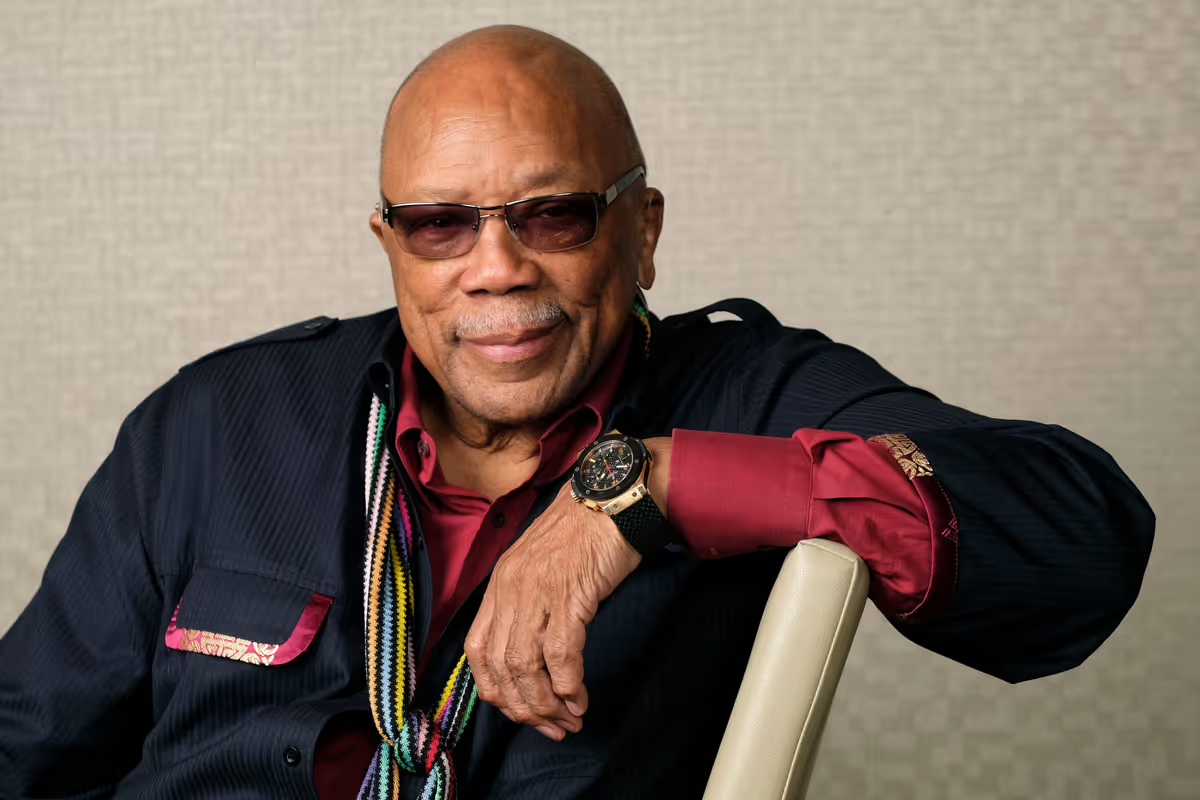Quincy Jones: A Life of Harmony, Innovation, and Unmatched Legacy

Quincy Jones died Sunday at his home in Bel-Air, where his remarkable journey began in the chaos of 1930s Chicago. Born on March 14, 1933, he emerged from a tumultuous childhood marked by poverty and family struggles. His mother, grappling with mental health issues, was institutionalized when he was just five years old. This backdrop of hardship was a crucible that would shape Jones’ resilience and determination, driving him toward a future of creativity and collaboration.
Despite these early challenges, Jones found refuge in music. At age 11, he discovered a passion for the piano that would guide him through life's adversities. He learned to play the trumpet and began performing with local jazz bands, setting the stage for an extraordinary career spanning six decades. By 14, he was already working with legendary musicians like Ray Charles, showing early signs of his future as a transformative force in the industry.
Jones broke through racial barriers in the 1960s as one of the first Black producers at Mercury Records. His innovative approach to music production revolutionized the industry, allowing him to produce and arrange music for numerous iconic artists. He made history as the first Black musical director at the Academy Awards in 1971, a testament to his influence and trailblazing spirit.
In the 1980s, Jones achieved global fame through his partnership with Michael Jackson. Their collaboration on the albums Off the Wall and Thriller produced some of the best-selling records of all time and defined the sound of a generation. Jones’s ability to blend genres and styles brought new dimensions to pop music and shaped the cultural landscape of the time. The Thriller music video remains one of the most iconic visual pieces in music history.
Jones’s creativity was not limited to music alone; he was a visionary in the film and television industries as well. His score for the groundbreaking miniseries Roots earned him an Emmy, and his ability to tell stories through music made him a sought-after composer. His humanitarian efforts were equally noteworthy; he co-wrote We Are the World, a charity single that brought together a multitude of artists to support famine relief in Africa.
Throughout his life, Jones was an advocate for social justice, using his platform to address issues of race, poverty, and equality. He was not just a musician but a cultural icon who inspired countless individuals across generations. His collaborations with icons like Frank Sinatra and Ella Fitzgerald elevated the jazz genre, while his work on projects like The Color Purple introduced new narratives to mainstream media.
In recent years, Jones continued to share his wisdom and creativity, reminding people to "keep the humility with the creativity and grace with the success." His 2018 documentary, Quincy, directed by his daughter Rashida Jones, offered an intimate look at his life, celebrating both his monumental achievements and the personal struggles he overcame.
Survived by seven children, Jones leaves behind a legacy that transcends music. As tributes pour in from fans and fellow artists, the world honors a titan whose influence will continue to resonate through the ages. California Governor Gavin Newsom noted, "A titan of music, culture, and philanthropy, Quincy Jones brought the world endless joy with his optimistic spirit and colossal imagination."
Quincy Jones’s life was a testament to the power of resilience, creativity, and collaboration. His remarkable journey from the hardships of his youth to becoming a beacon of hope and inspiration for countless individuals is a legacy that will endure long after his passing.






